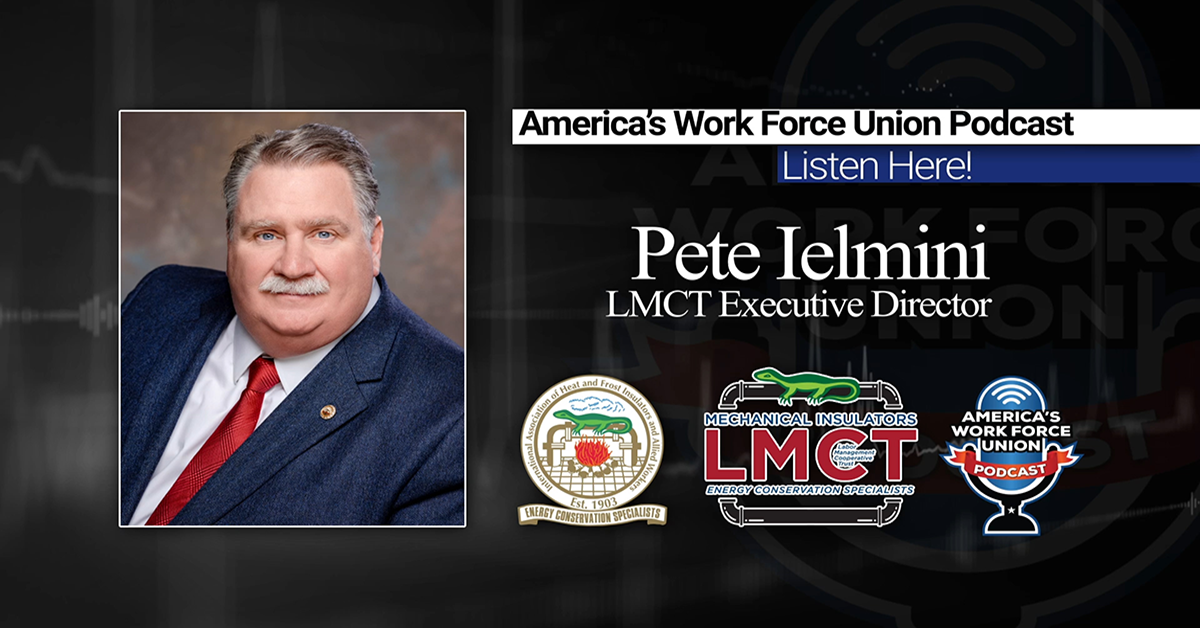Installation of Mechanical Insulation could qualify for a tax credit
Mechanical Insulators Labor Management Cooperative Trust (LMCT) Executive Director Pete Ielmini joined the America’s Work Force Union Podcast and talked about the Commercial Buildings Energy Efficiency Tax Deduction.

